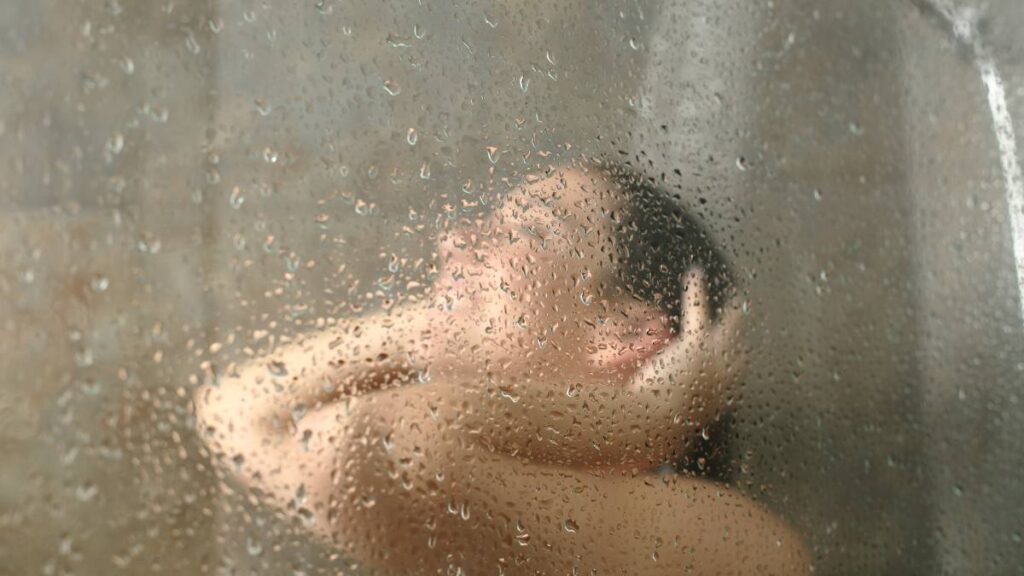Did you know there’s a right way to shower? Some of the most common shower habits may not be good for your health, or your cleanliness.
Here are 10 shower habits that could be doing you more harm than good.
Washing your face in the shower
It’s certainly easier to get stage one of your skincare routine out of the way in the shower, but it’s not best practice. The water that you shower in will typically be much hotter than what you’d wash with at the sink, and the high temperature can make your skin dry out very quickly.
Excessively hot water can exacerbate some skin conditions, such as rosacea, causing redness and irritation.
Not washing your feet
It’s easy to forget your lower legs and feet when you’re soaping up, after all, they come into contact with plenty of water along the way, right? Wrong.
Warm, sweaty feet are the perfect environment for bacteria to thrive. When these bacteria interact with moisture, they emit sulphurous by-products, causing that well-known foot odour.
So, getting your feet wet without giving them a good scrub could be contributing to your smelly feet. Ensure you wash and dry your feet thoroughly (especially in between your toes).
Leaving bar soap in a wet dish
Germs can and most likely do live on all bars of soap, but it’s very unlikely they will make you sick or cause a skin infection. Generally, those with a compromised immune system are really the only ones who should be extra cautious and stick to liquid soap. If you are healthy, your body will have no problem fending off the germs.
Bacteria lives quite happily in the ‘slime’ of bar soap, so rinse off the bar in running water before lathering up to wash away the majority of germs. Always store soap out of water, allowing it to dry between uses. Never leave it in the soap holder in a puddle of water, that way, there’s no moist environment for germs to gather in the first place.
Better still, ditch the soap and use a super sensitive body wash.
Leaving your razor in the shower
Just like leaving a bar of soap in a puddle of water, not allowing your razor to dry out completely after each use can make it a breeding ground for bacteria.
There are plenty of tight spaces on razors that make perfect spots for bacteria to hide.
If you can’t store your razor out of the shower, at least make sure to hang it up so it can air dry completely.
Using the same towel too many times before a wash
Towels stay damp for a while after you’ve dried yourself and this period of dampness is just the right environment for microbes to grow and reproduce. A few of the different types of microbes you might find on the most innocent-looking bath towels include mould, yeast and even E. coli. These tiny colonies are invisible to the naked eye but, if left unchecked, they will continue to grow.
Most experts agree washing your towel after three uses is ideal.
Not replacing your sponge or loofah regularly
Sorry to break it to you, but your loofah is probably brimming with bacteria. They’ve got lots of nooks and crannies and are porous and stay damp, which is the perfect formula for breeding bacteria.
To avoid this, hang your loofah up to dry after each use. Clean your loofah weekly by soaking it in a diluted bleach solution for five minutes and then rinse thoroughly. Replace your natural loofahs every three to four weeks and your plastic ones every month or two. If you notice a musty odour or see mould growing on it, toss it.
Taking really hot showers
Showering in very hot water during the winter can dry out the skin. Extreme dry skin can develop into more serious conditions such as skin inflammation and may even increase eczema.
Hot showers and baths can also damage the surface of the skin, causing inflammation, redness, itching and even peeling similar to a sunburn.
Too hot showers can also strip your skin of the natural oils, fats and proteins that are essential for healthy skin.
Try turning down the dial a little at a time until you’re comfortable under colder water. You don’t want to be left with red skin after a shower.
Washing your hair daily
If you think your hair gets too oily without a daily wash, it could be the daily wash that’s causing the oil. Washing too often dries out your scalp, which makes it produce more oil to compensate.
Typically, you really only need to wash your hair a few times a week. Of course, everyone is different, and some may choose to wash more often due to exercising or working in polluted cities.
If you want to start shampooing less often, try using dry shampoo on your roots every other day to absorb some of the excess oil.
Exfoliating too often
Giving your skin a gentle scrub every now and then is a good idea to remove dead skin cells, dirt, grime and makeup. But you can exfoliate too much.
Your skin naturally replenishes itself every 25 days on average. So, by scrubbing off fresh skin cells each day, you can cause redness, irritation and breakouts. Let your skin have a break and exfoliate twice a week.
Using scented soaps
Scented soaps can make your bathroom and skin smell heavenly but they can also lead to skin irritation.
Anyone who notices that their skin is irritated after a shower should look to their soap as the first culprit. Fragrances can irritate sensitive skin very easily, so it’s best to use something unscented to keep your skin in the best shape.
Do you make any of these shower mistakes? How often do you wash your hair? Why not share your thoughts in the comments section below?
Also read: Embarrassing personal questions answered

